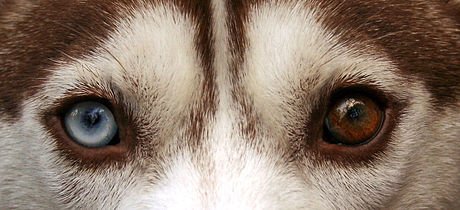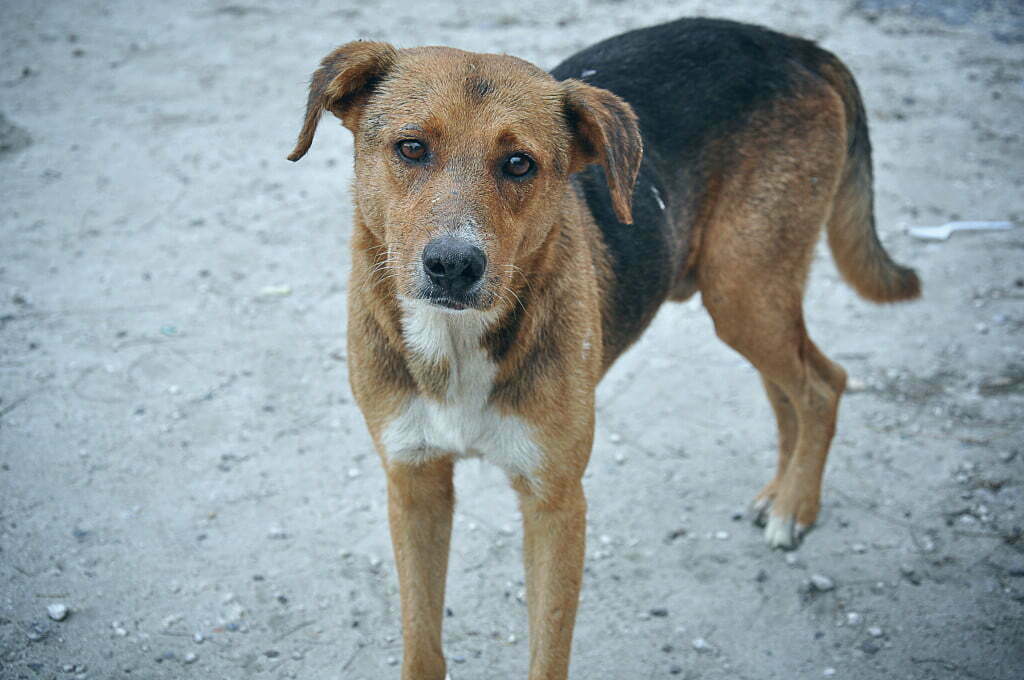
By Muhammed Zulqarnain Zulfi
Dogs are her first and probably only love !!
Pratima Devi, a 61-year-old ragpicker lives in a tin shack decorated with a few torn rugs near the Anupam PVR multiplex in south Delhi’s Saket.
Stray dogs can be seen walking around her shanty, like disciples of a holy saint. Better known as Amma, Pratima Devi has lived in the same shack for more than three decades and earns only to look after hundreds of dogs in the locality.
“I look after over 400 dogs – about 200 around my home. Others are scattered in the courtyard of the PVR complex up to J-block (a little over half a kilometre away). My dogs never bite. They have been sterilised and vaccinated by the MCD (civic body),” Pratima told IANS.
She nurses the injured dogs and feeds them from a civic van in the evenings – the fare includes milk, stew and mutton. Pratima has earned quite a reputation in the locality today and many neighbours make a contribution toward feeding the dogs.
“I was married at the age of seven to a man who was more than 10 years older than me. My husband often came home drunk and used to beat me. My mother and I have suffered at the hands of our in-laws,” recounted Pratima, who came to Delhi in the early 1980s from Nandigram in West Bengal.
At the age of 14, she bore her first child who came to Delhi to work as a five-year-old. Pratima had already parted ways with her husband and was working as a domestic in Kolkata. She decided to move to Delhi to be with her older son. She has two more children.

Amma said she has worked as a domestic in model-turned-actor Rahul Dev’s home. “He was very fond of my paranthas,” she said, adding the actor still comes to visit her. She later ran a tea stall near PVR for more than 25 years. But popularity came at a price.
Also Read: 15 Countries where people eat dogs and cats
“A neighbour who owned a departmental store conspired with two policemen and burnt down my tea stall along with my house. I was injured and many of my dogs were also burnt. They spared no one,” she recalled while showing burn marks on her feet.
Pratima has now bought a house in Sangam Vihar, some five km away, where her children live today, but she refuses to go as her adopted children – the dogs – are not welcome there.
“My children do not want me to stay with them because of the dogs. And I cannot leave them. Who will take care of the dogs if I leave them,” she asked.
Mental health professionals, however, have a different take on the issue. They feel that dogs sometimes fill emotional gaps in people’s lives, but add that when socialisation is exclusively limited to pets, there were possibly underlying issues.
“It’s like dogs domesticated humans and vice versa. Most people feel comfortable with animals. Nothing wrong with it, but confining oneself to animals definitely is (not good),” Suyesha Singh Rathore, a counselling psychologist, told IANS.

“During social anxiety, an anxiety disorder in which a person has an excessive and unreasonable fear of social situations, humans often avoid social interaction for relaxation but unknowingly tend to behave differently. Some prefer talking to walls while others to birds, plants and sometimes animals. The most common state is ‘parler a chien’ (talking to dogs) as social adaptations of dogs and humans are similar enough. The dogs can live perfectly happy lives surrounded by humans and vice versa,” Rathore added.
“Fear of being closely watched, judged and criticised by others may lead to anxiety and self-consciousness,” she pointed out.
However, there are several reports, including one cited by the New York Times, that speaks of not just the benefits of cuddling a pooch, but also explain the science behind the compelling draw of “puppy eyes” that your pet may subject you to. The feeling of wellness you get while playing with your pet may be rooted in your brain chemistry. And it works both ways.
“The look of love can also be in the dog’s eyes. Dogs who trained a long gaze on their owners had elevated levels of oxytocin, a hormone produced in the brain that is associated with nurturing and attachment, similar to the feel-good feedback that bolsters bonding between parent and child.”


I must stand up and bow my head in reverence before this extraordinary woman. Words fail me to describe this example of such selfless love for man’s best friend. I commend the staff members of the taazakhabarnews bureau who brought out this story for us. Yes, she has indeed a heart so large that she humbles many many dog lovers. Resourceful people can do things in spite of little love; it requires great love to do things with minimal resources. Thank you taazakhabarnews for this story. The boys/girls have done well. God bless them